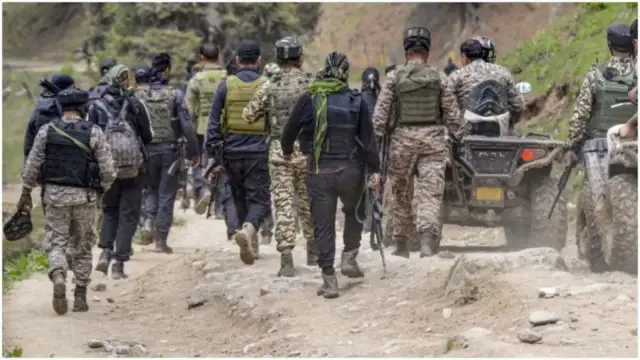Unity in diversity: PM Modi advocates for education in all Indian languages
Prime Minister Narendra Modi emphasized the harmony among Indian languages at a Delhi event, amid ongoing tensions between the Tamil Nadu government and the Centre over the controversial three-language policy in the National Education Policy.

Amid the ongoing debate between the Centre and the Tamil Nadu government over the three-language policy, Prime Minister Narendra Modi has emphasized the linguistic harmony of India, stating that there has never been animosity between Indian languages.
PM Modi Advocates Linguistic Unity
Speaking at the 98th Akhil Bharatiya Marathi Sahitya Sammelan in Delhi, Prime Minister Narendra Modi asserted that Indian languages have always influenced and enriched each other. He highlighted the government's commitment to promoting education in all major languages, including Marathi, and to changing the mindset that overlooks talent due to a lack of English proficiency. Modi's remarks come at a time when linguistic diversity and inclusion are being actively discussed and promoted.
Tamil Nadu's Stance on Three-Language Policy
The Prime Minister's statement gains significance in the context of the ongoing political contention between the DMK-led Tamil Nadu government and the central government over the implementation of the three-language policy outlined in the National Education Policy (NEP) 2020. The NEP proposes the inclusion of Hindi, English, and a regional language in the curriculum, a proposition that has faced strong opposition in Tamil Nadu.
Education Minister Urges Collaboration
Union Education Minister Dharmendra Pradhan has appealed to Tamil Nadu Chief Minister MK Stalin to prioritize the interests of young learners and rise above political differences regarding the NEP3. Pradhan refuted the claim that the policy imposes any language and accused Stalin of using educational reforms to sustain political narratives. He emphasized that the NEP is designed to be flexible, allowing states to customize its implementation to suit their unique educational needs.
Tamil Nadu Stands Firm
Responding to Pradhan, Tamil Nadu Deputy CM Udhayanidhi Stalin reaffirmed that the state would adhere to its existing two-language policy, which includes Tamil and English3. He clarified that Tamil Nadu is simply seeking its rightful share of funds from the central government, derived from the taxes paid by the state.
Historical Context and Lingering Concerns
The issue of "Hindi imposition" has deep historical roots in Tamil Nadu, dating back to the anti-Hindi agitations of the 1960s. These events underscore the sensitivity surrounding language policy in the state and the DMK's commitment to protecting Tamil language and identity.












